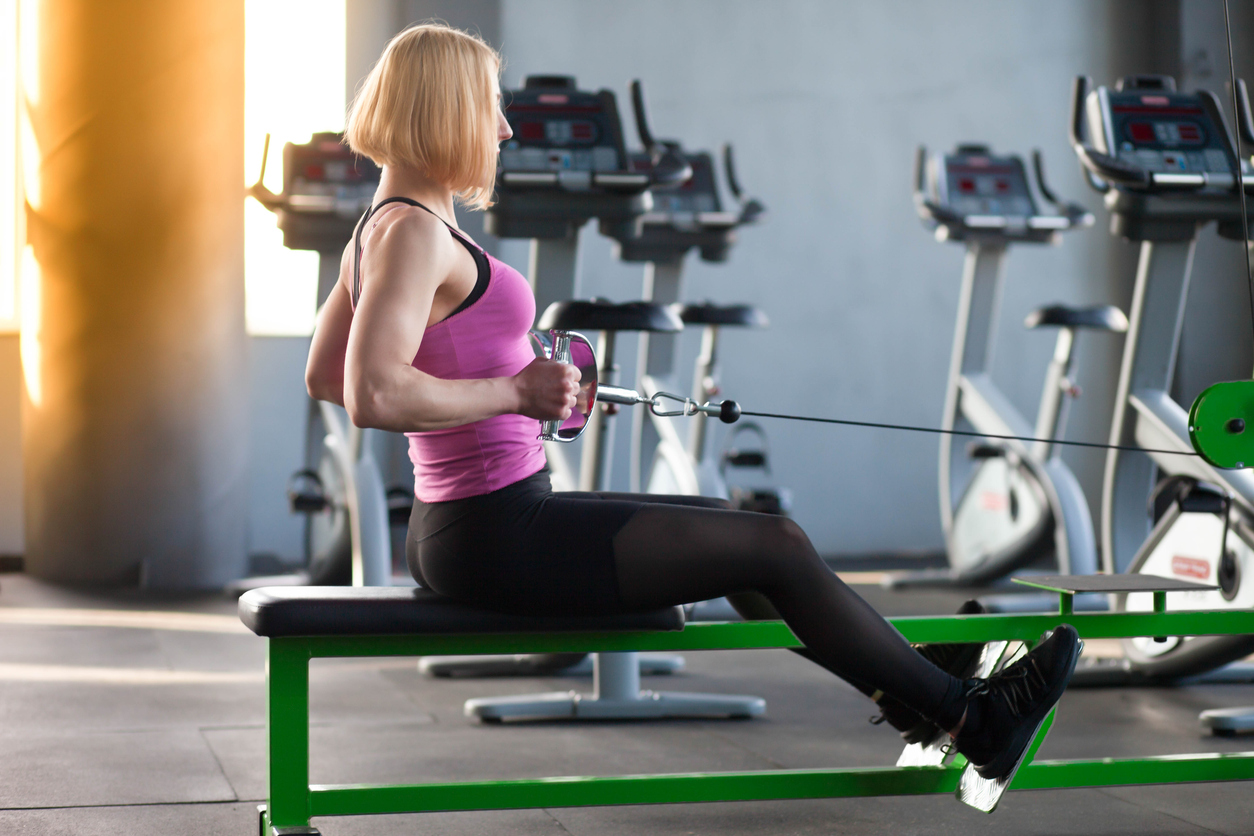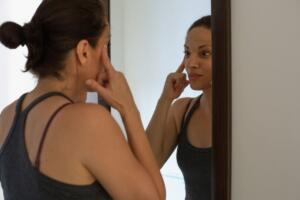Wouldn’t it be great if there was a magic exercise that could target back fat? This sounds too good to be true, and indeed it is! To understand why it’s impossible to target back fat with exercise, we need to look at some different factors and prepare to work the whole body instead.
This article will detail why this is the case and how exercise can improve the overall appearance of your back. But first, let’s understand fat.
What is back fat, and how does it come about?
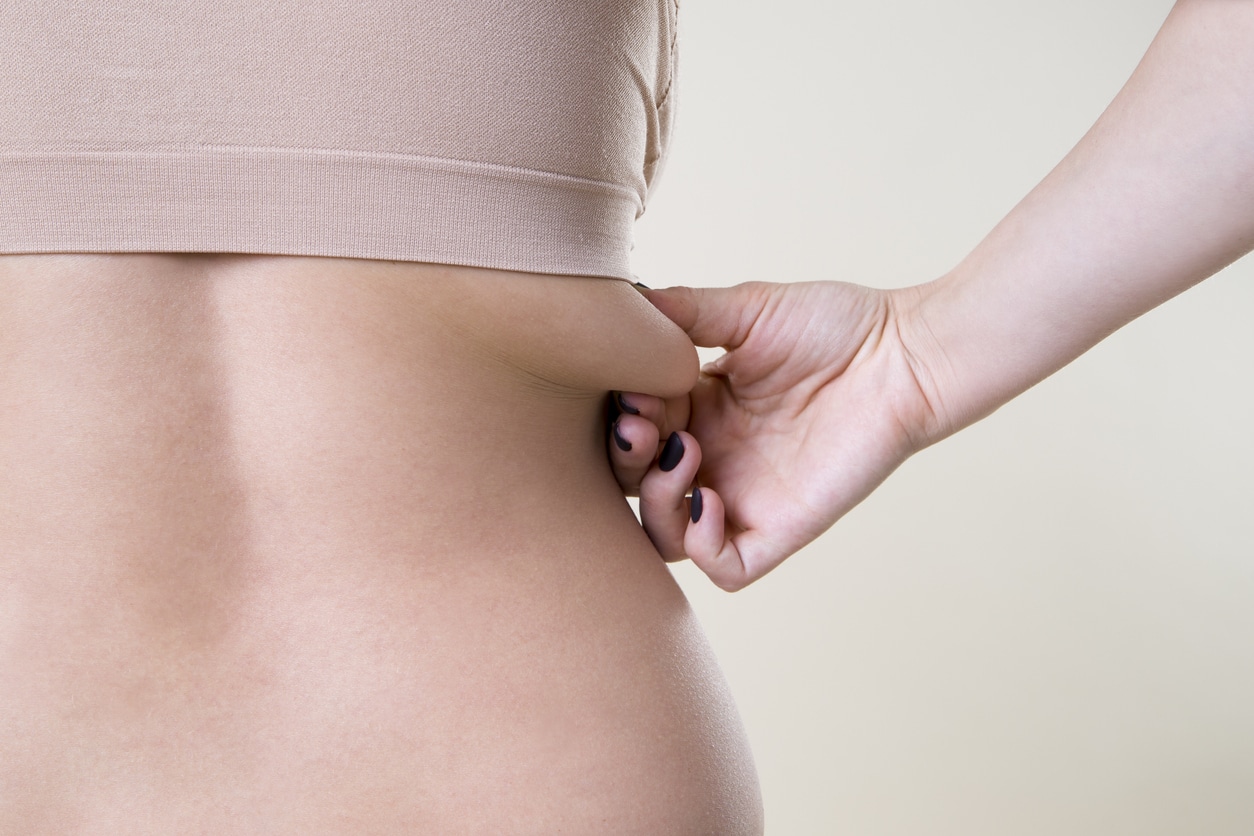
The body stores fat as a source of energy – the result of an evolutionary mechanism to prevent starvation. However, in the 21st century, the abundance of food has led to our tendency to overeat and store excess energy as fat. For many people, this leads to unhealthy weight gain when coupled with a sedentary lifestyle.
There are three types of fat in the body: essential, subcutaneous, and visceral. Essential fat is necessary for life and includes fat that makes up cell membranes, myelin sheaths, bone marrow, and fat involved in other essential bodily processes.
Subcutaneous fat is stored beneath the skin and accounts for most of the body’s fat storage. Visceral fat surrounds internal organs and is associated most strongly with malignancies related to cardiovascular disease, diabetes, and metabolic syndromes. Fat is mainly stored in fat cells called adipocytes, which make up adipose (or fatty) tissue.
Subcutaneous fat contributes to a less-than-appealing physique, so this will be the focus of discussion moving forward. Back fat is essentially just subcutaneous fat that sits under the skin of the back.
How can you target back fat?
As stated before, it’s impossible to target back fat directly. However, it is possible to target and reduce overall body fat, thereby reducing back fat. When your body uses energy —for instance, during exercise —your muscles are supplied with energy primarily from carbohydrates and fats. Calories are typically used to measure the amount of energy supplied to working muscles, which is proportionate to the intensity and duration of the exercise.
Engaging in high-intensity exercise such as HIIT makes it possible to burn the most calories in the shortest amount of time – and hence lose the most back fat as a proportion of overall fat. This is despite the fact that lower-intensity exercise burns a greater proportion of fat vs. carbohydrates than high-intensity exercise. This is because high-intensity exercise burns more energy overall, and fat is often used to replenish carbohydrate stores in the body via gluconeogenesis post-exercise. This creates a longer-lasting fat-burning period than that resulting from low-intensity exercise.
Strength training for a better looking back
In addition to HIIT, strength training can build a leaner and more appealing back. By increasing the lean muscle mass in the back, you will create a slimmer and more elegant back. This is often referred to as ‘toning’ and is actually the result of firmer and better-shaped legs, arms, and back by increasing lean muscle mass in these areas.
Exercises that target the back come in many flavors, and you will need some equipment to train the back. All of the equipment can be found at your local gym or purchased at the local sports store. We have broken down these strength exercises into those that can be done at the gym and those that can be done from home.
3 Gym Exercises for a Leaner Back
1. Seated row
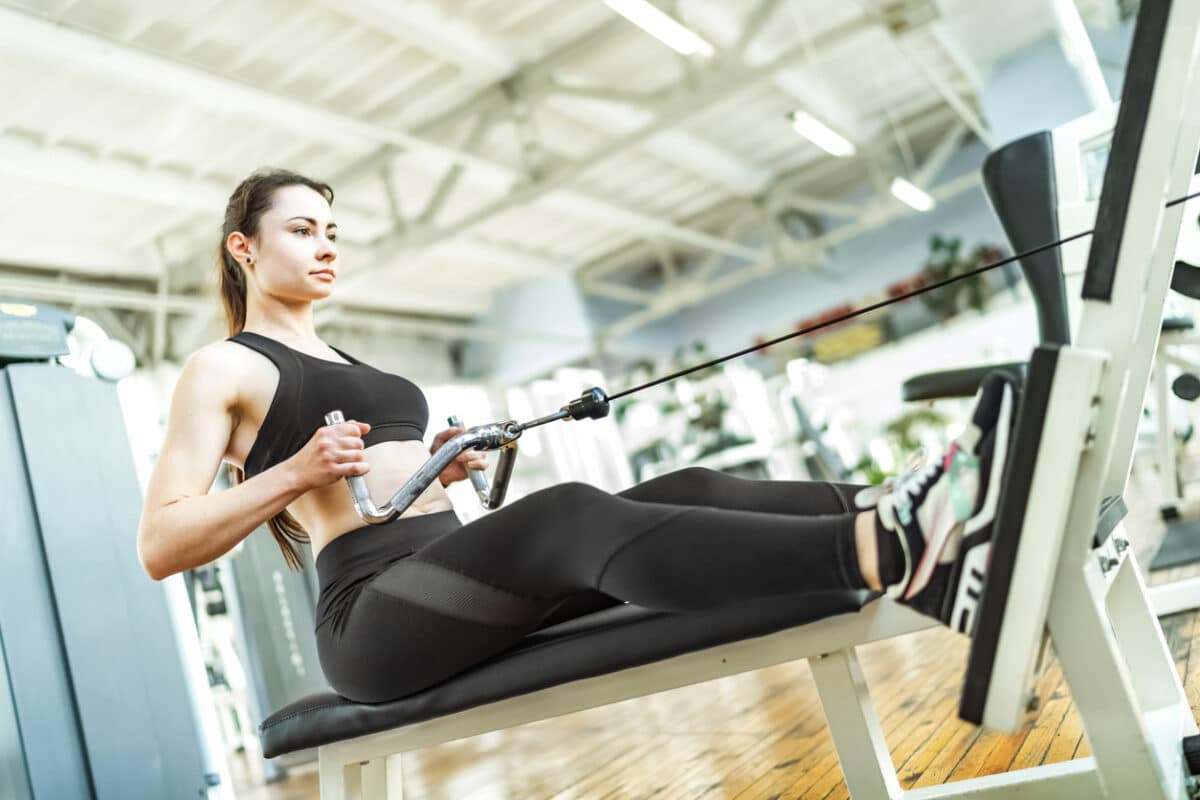
The seated row is a fantastic exercise that requires a seated row machine. This machine works the back better than perhaps any other. To build firmer muscles around the upper back, where back fat tends to accumulate, it’s necessary to target the rhomboids and lower trapezius specifically. It’s also important to isolate these muscles without activating the upper trapezius, which is already overstimulated by sedentary behavior and the resulting postural problems for many people.
To complete this exercise correctly, you must sit up straight and pull only through the arms and back without changing the position of the rest of your body. If you need to lurch back to bring the weight in, it’s too heavy!
There are two secrets to this exercise: scapula retraction and scapula depression. The scapula is a triangular bone structure that sits on your back and is involved in the movement of the rotator cuff. Scapula retraction can be thought of as the joint pinching the shoulder blades together. Extend your arms in front of you and imagine a coin between your shoulder blades – now squeeze the coin using your shoulder blades. This is scapula retraction.
Scapula depression is a related movement in which the goal is to minimize the engagement of the upper trapezius. To better understand this movement, lift your shoulders as high as possible without lifting your arms. You should look like a turtle hiding its head in its shell! Now lower your shoulders as far as possible—typically, you should be able to lower them below their resting position. This is scapula depression.
While performing the seated row, as with every back exercise that follows, it’s imperative that the scapula is retracted and depressed during muscle engagement in both the concentric and eccentric phases of each exercise. If you’re struggling with these movements, you should consider professional coaching, as the incorrect engagement of the back can lead to injury.
2. Dumbbell bent-over row
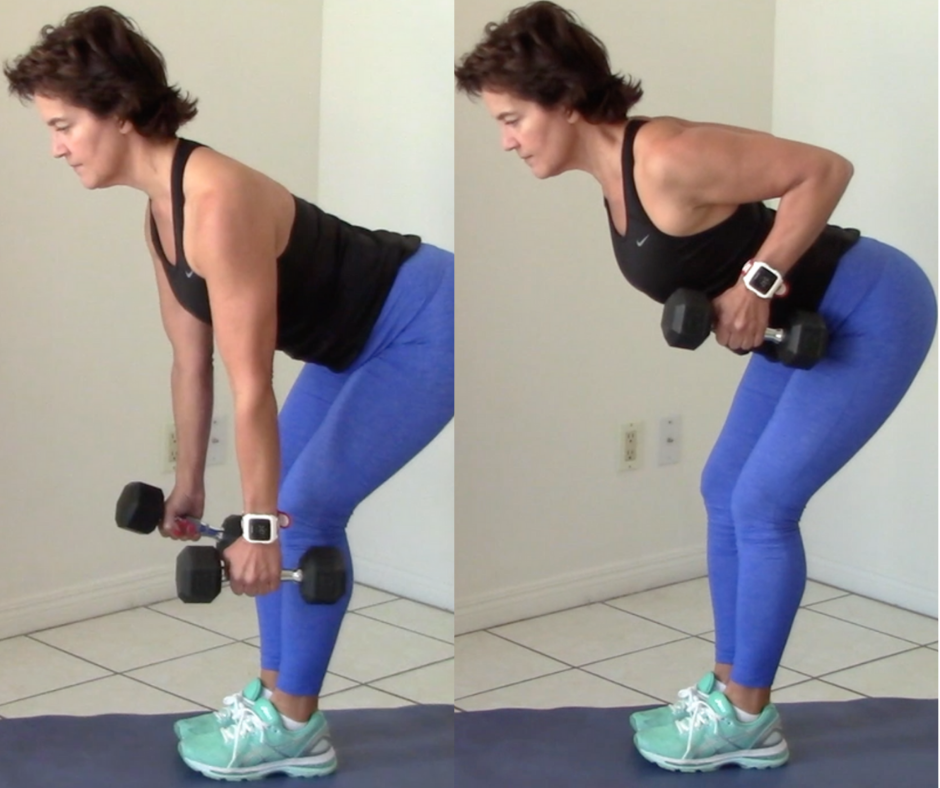
This is a dumbbell exercise that can really get the rhomboids going! It can be done either standing or leaning over a bench and requires the back to be parallel to the ground. The back is engaged as the dumbbell is pulled vertically up against gravity. For newcomers to this exercise or for those wanting to lift heavier, a bench is recommended for increased stability.
The bench variation requires that one knee be placed on the bench while the second foot remains on the ground. One hand is also placed on the bench while the other holds the dumbbell. As such, only one side of the back can be exercised at a time in this variation.
3. TRX rows
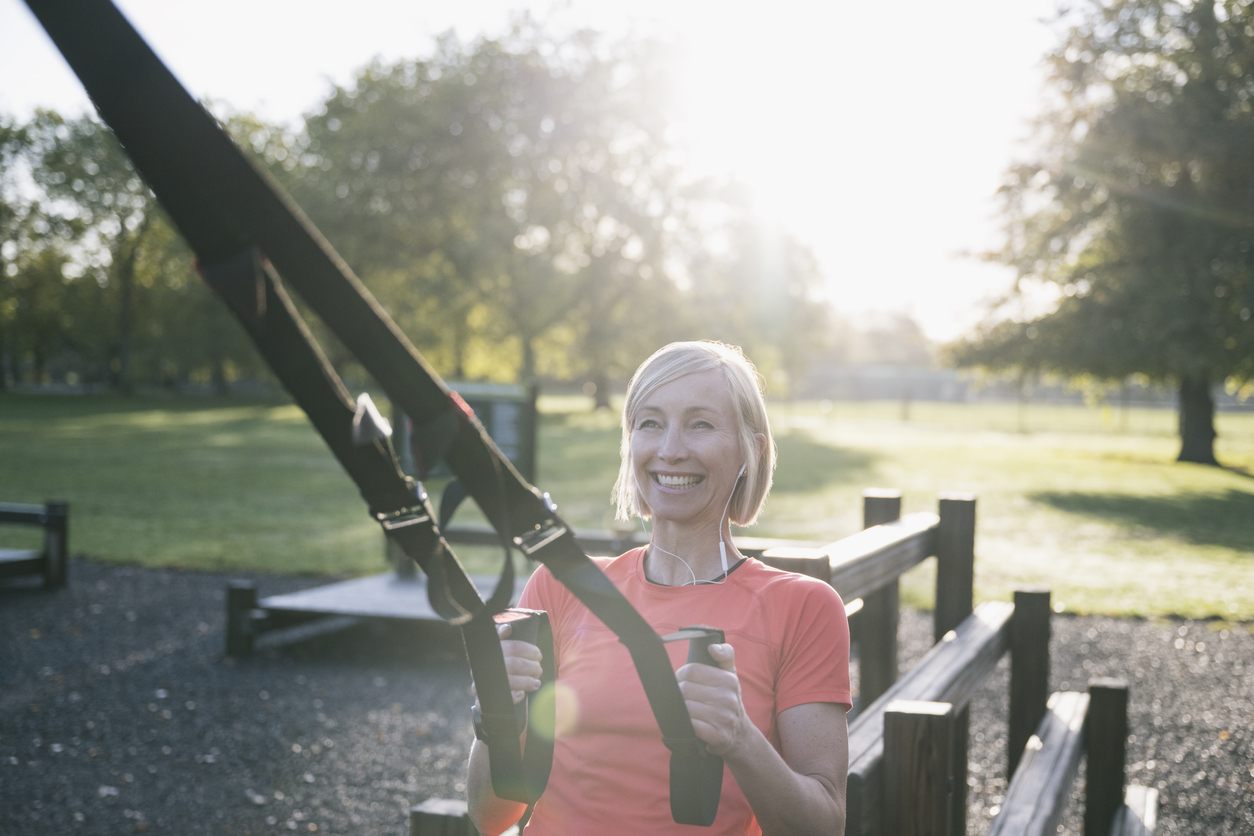
The TRX is a suspended training tool that’s great for working out the back with your body weight. You can do TRX rows by leaning back while holding the TRX handles and pulling up at a 45-degree angle.
The exercise difficulty can be changed by adjusting the angle through the position of the feet. For example, placing the feet further forward can make the exercise significantly more challenging.
2 Home Exercises for a Better Back
1. Resistance band seated row
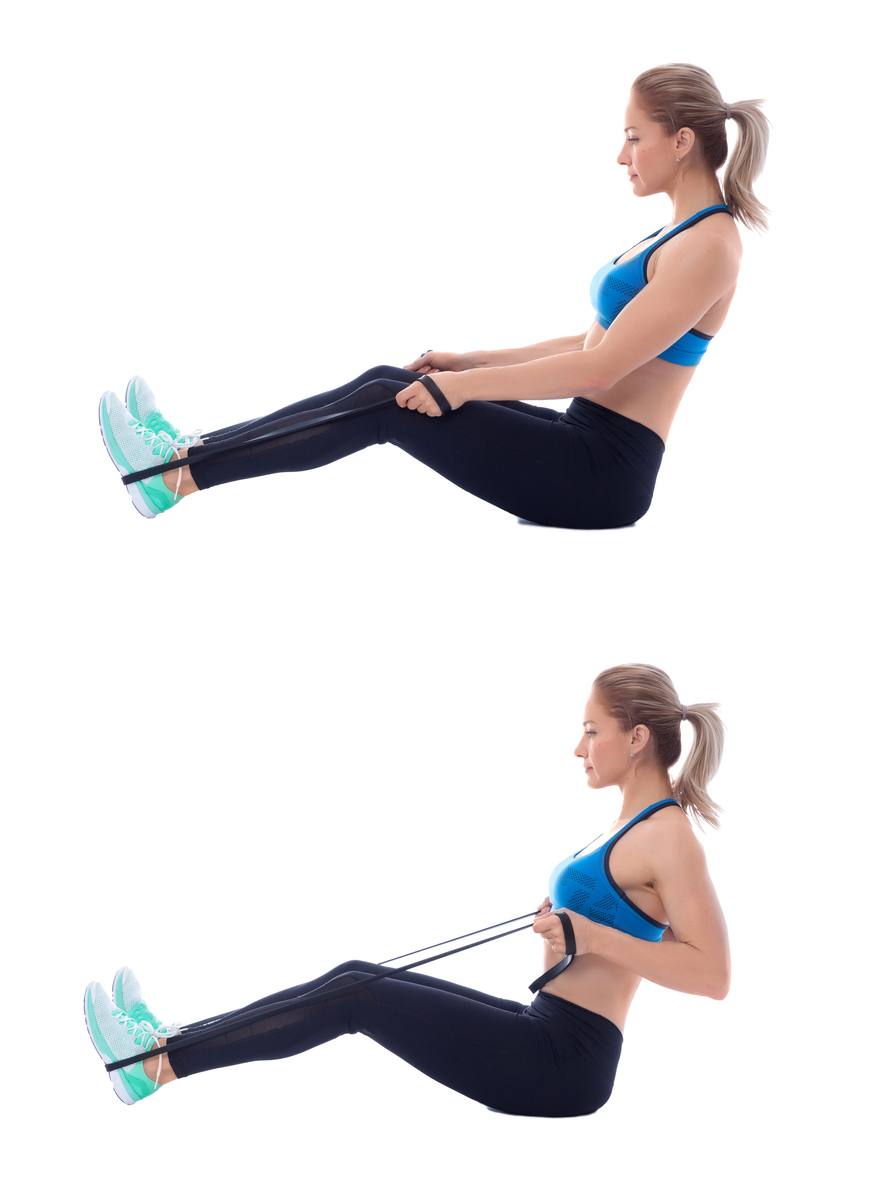
The seated row exercise can be performed at home using a resistance band. Select a resistance band with the appropriate thickness—the thicker the band, the harder the exercise will be. Take a seat and loop the band around your feet. Pull the band while maintaining good posture. Some resistance bands also have handles that can make the exercise more comfortable.
2. Australian pull-ups
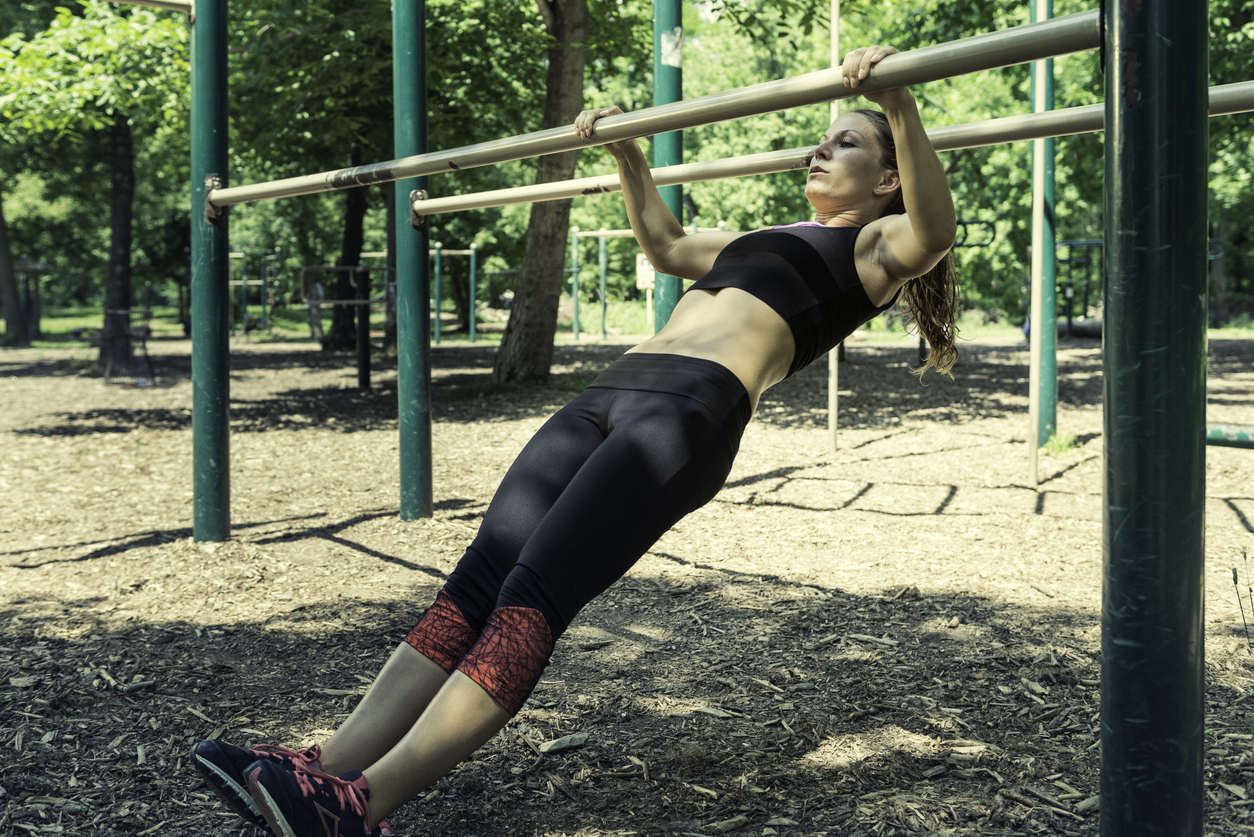
Australian pull-ups are great because they can be done at the local park. All you need is a low bar or set of parallel bars to complete this exercise. This exercise replicates the TRX rows and is done underneath the bar at a 45-degree angle. Pull yourself up at this angle while keeping your body straight. Your objective is to touch your chest to the bar.
Our Picks for Great Home Workouts:
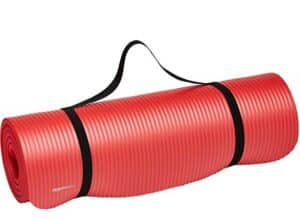
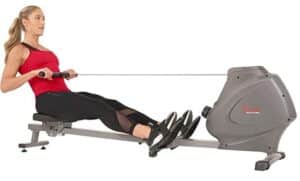
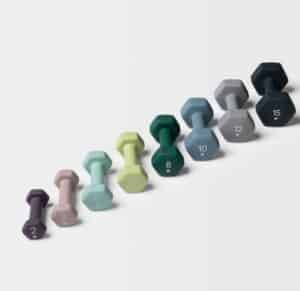
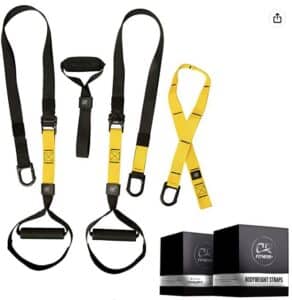
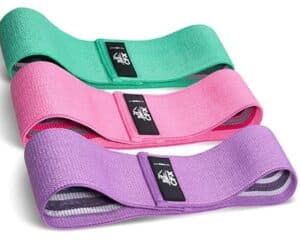
In summary:
Back fat cannot be targeted directly through exercise, but overall, fat definitely can be! High-intensity exercise is best for reducing overall body fat, which will also help reduce back fat. Strength exercises for the back can also strengthen the back muscles, creating a firmer and leaner-looking back.
Guest Author: Vic is a Melbourne-based Personal Trainer, Calisthenics Athlete, and the Founder of Street Workout St Kilda & Liquid Chalk Shop. He has a passion for bodyweight training and the art of movement.
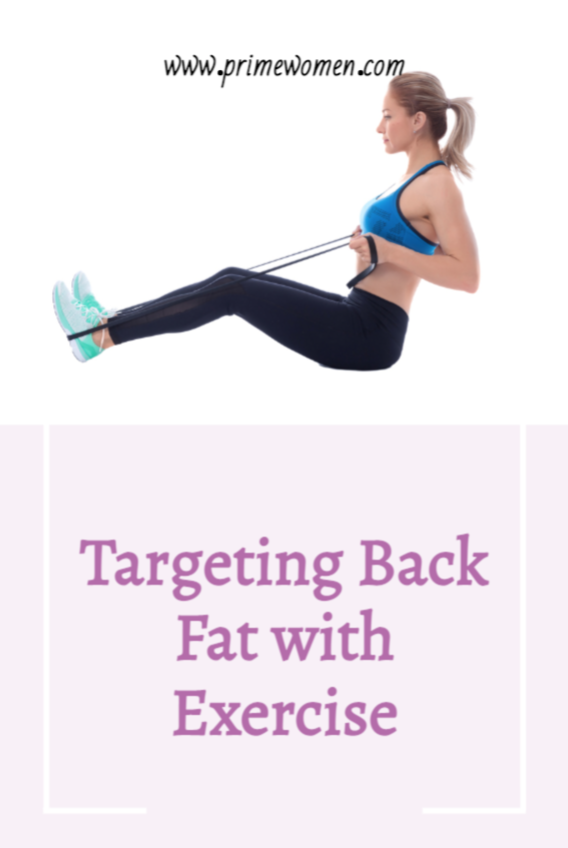
Read Next:
5 Best No-Equipment Triceps Exercises For Strength

